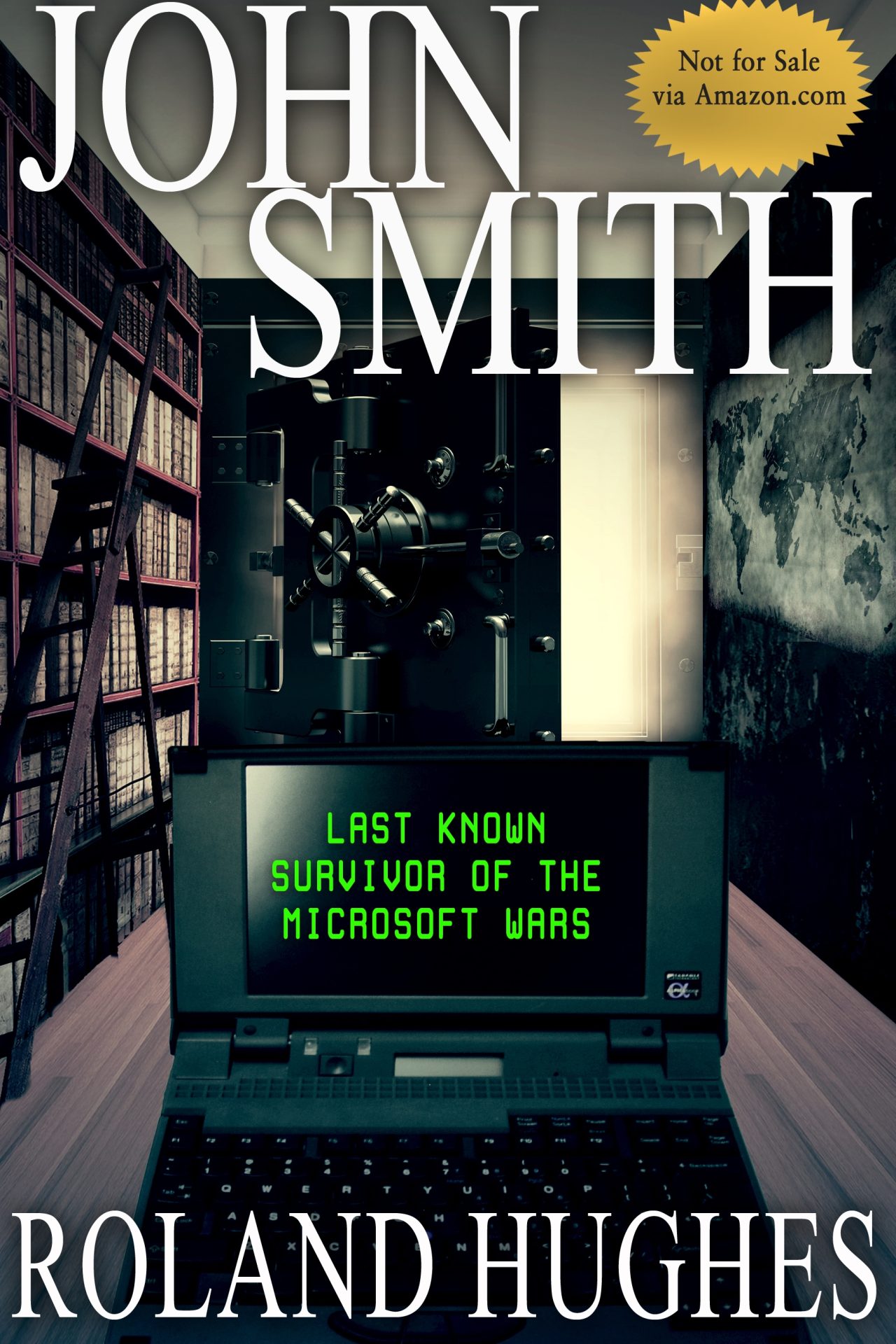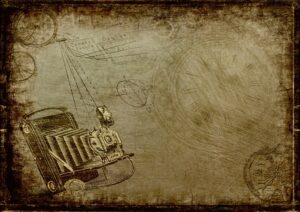JS: No matter what you believe, there wasn’t enough known safe area to let all of the people try piling up. Nor was there enough food to feed that size of a population without having to go outside during the two plus years it took the planet to settle down.
SK: Don’t try to back pedal out of it now.
JS: I’m not. People built bunkers in Wisconsin, too. There were many theories about which areas would survive but most were simply pulled out of someone’s ass, without the slightest bit of evidence to back them up.
How would you like to be the really rich guy in Wisconsin who built a five-story, air-tight underground bunker with enough supplies to sustain his entire family for six years? The guy put everything in that bunker; everything, that is, except some kind of escape vessel that could carry his family from the bunker to the surface of the ocean now sitting on top of the bunker.
SK: It is still heartless.
JS: How so? The evening news, daily papers, radio, even the Internet talked about the possible polar shift. Most people laughed. When you tell someone the end of the world is possible, they always believe it won’t happen to them.
SK: If the information was really that widespread, I cannot believe more people didn’t take heed.
JS: Really? How many girls did you grow up with who didn’t believe they would ever get pregnant while dating despite all of the warnings about the need for birth control or abstinence?
SK: Well I don’t see how such a chauvinistic remark deserves a reply.
JS: Same mentality, larger audience.
SK: There certainly is more than enough land for everyone now.
JS: Now, yes. A lot of it just surfaced in the past ten years.
SK: What? Land just magically pops out of the ocean every so often?
JS: More or less. The ice caps are still forming, which is trapping water at the new poles. Volcanoes both under the oceans and on existing islands are dumping molten lava into the water periodically. This not only builds land, it causes water levels to temporarily decline due to all of the steam given off.
Many of the regions, which had empty oil wells on them, are now underwater. As the caps and equipment on those wells fail, channels open up to great caverns, which can hold millions if not billions of gallons of water.
SK: Oil wells?
JS: Poor dead Dino.
SK: What?
JS: Some time during the early years of the last cycle, incredibly large animals known as dinosaurs roamed the planet before man took over. We know this because various sets of bones and fossils were found. During the Ice Age, dinosaurs mostly either died off or evolved into dramatically smaller versions of themselves, like lizards.
For years, scientists believed that black gooey stuff oozing up out of the ground was the result of millions of years of dinosaur decomposition. The last cycle of humans called it crude oil. It could be refined into a wide array of products. We drilled thousands of wells and pumped billions of gallons out of the ground. Every time someone estimated we were about out of oil, someone found a way to drill deeper. Eventually, we were drilling over 40,000 feet deep and hitting oil.
Scientists had various explanations for why oil always seemed to be found in large quantities rather than millions of sites with only a few hundred gallons each. They told us these beasts were herd-like and had areas they considered burial grounds. Like the elephants of my day, when they felt their time was near, they would travel to these places to die.
SK: You don’t believe this?
JS: No. People didn’t wish to face the horribly honest truth, so they chose to believe a convenient lie…hmmm, I think there was a movie called The Inconvenient Something or Other. Turns out what was really inconvenient was the email trail documenting the suppression of data, which didn’t support the outcome of the documentary. Even if the outcome of the film was the truth, the number of people who refused to believe any part of it once those emails surfaced grew dramatically.
Ah well, a work of fiction doesn’t have to be true, unless you market it as a documentary; then, as soon as the firstbit of inconvenient email turns up, you will wish you had sold it as a work of fiction. At any rate, you won’t find a copy of that work in my library. Fiction can propose anything it wants to make people think but a documentary must be as pure as the driven snow.
SK: What is the truth according to John Smith?
JS: That they shouldn’t have openly discussed the destruction of data and how to best squeeze scientists who didn’t agree with them out of the peer-review process via an email server, which had archived messages. If you’re going to fudge numbers, destroy the data and the archives. Never use the written word to discuss anything that could appear shady, especially if it is shady.
SK: Well, I’m sure that is good advice for anyone leading such a life; however, I asked what the truth was according to John Smith about crude oil.
JS: Great herds of animals don’t die off all in one spot. Many of these animals were meat eaters. The meat eaters of today either hunt alone or hunt in small packs because 10,000 plus charging through the brush cannot sneak up on game.
While you may have had some locations that various species considered burial grounds and some locations where the water was deadly for them to drink, there would not be tens of thousands of such locations. At one point, there were documented to be more than 42,000 oil wells. Early on, the dead dinosaur story was put out and everybody was willing to believe it because the truth was too bitter to swallow.
SK: I ask again, what was the truth according to John Smith?
JS: Later in life, when people were counting the number of wells and starting to not buy the “dead Dino” story, scientists made an even more ludicrous claim. They claimed the jungle and forest, which covered all of the land during the age of the dinosaur, was also decomposing and creating large pools of oil.
SK: Why was this so ludicrous?
JS: Admittedly, plant and animal life will share some mineral content, and all things will create some kind of goo when they reach that liquefying stage of decomposition. However, I do find it a stretch that both would end up creating crude oil, no matter how much heat and time were applied, unless crude is a very tiny subset of minerals that survive decomposition.
Eventually, scientists started claiming crude was caused by decaying plant and animal life. I guess fish never played into the formula. Scientists really had no choice. They had to explain to an increasingly skeptical public why some crude was yellow and some black. Some crude was fast-flowing liquid and other crude was a solid brick.
SK: I ask again, what was the truth according to John Smith?
JS: Crude oil is decomposing humans from earlier cycles. Each cycle lasts an unbelievably long time, as far as human life is concerned. Humans, by and large, have a need to build communities. As the cycle progresses, these communities become cities of a massive scale. When the earth shifts and heaves its continents around, these cities are buried deep in a matter of hours, if not seconds. They are buried deep without air or the nutrients needed for bacterial decomposition.
The steel eventually reverts back to iron and carbon; the concrete, to limestone and sand. I’m not certain what happens to the glass other than the fact it is crushed into pieces so tiny one wouldn’t notice them coming up with the drilling mud. The humans and their pets, though—they are crushed and eventually, the heat of the earth cooks them into crude.
SK: That is a disgusting thing to say. We have one of those oil sites oozing stuff out of the ground near our city! People use it for all kinds of things.
JS: Humans are useful in a variety of forms. Have they invented a product called petroleum jelly yet? It’s kind of greasy, helps cuts heal and looks a lot like animal fat.
SK: Oh! I cannot believe I’m being forced to sit here and listen to this!
JS: Do you think I’m the first to point something like this out? I suppose you have never heard of cannibalism either?
SK: Another disgusting tale to frighten children!
JS: Oh no. It was real and existed in various forms around the globe. Even in large cities, where everybody claimed it never happened, you would see the occasional news report that someone had been arrested with pieces of humans in their fridge or freezer. There was even a movie about the earth running out of food and governments taking it upon themselves to make cannibalism palatable to the masses.
SK: I simply cannot accept the premise anybody would believe such a story.
***********************
You are reading a special promotional version of “John Smith – Last Known Survivor of the Microsoft Wars.” This is the third book of the “Earth That Was” trilogy. You can obtain the entire trilogy in EPUB form from here:



[…] <Previous Part Next Part> […]